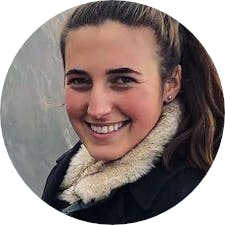The Sherry and John Woo Center for Big Data and Precision Health (DAP), which opened last year, hosted the first annual DAP symposium Oct. 24. The center plans to continue with this event for years to come as medicine grows more connected and exact.
At the full-day conference, 25 speakers came from around the world, bringing together new research and ideas. Specifically, the audience learned about findings in precision medicine, genomic engineering, genomic regeneration, artificial intelligence and health data.
“This is a chance to relaunch things with people from different fields because people like us, we don’t talk to each other. But I think [the audience] can see a theme, a common thread of all the fields asking ‘How can we be more precise?’” said Woo Center Director Xiling Shen.
Precision medicine is the practice of tailoring treatments to specific people or groups of people according to their genetic or molecular profile, as well as lifestyle and environmental factors. It allows for more accurate care and is considered a clear direction for the future of healthcare.
The talks began with symposium keynote speaker Hans Clevers, group leader at the Hubrecht Institute for Developmental Biology and Stem Cell Research and at the Princess Máxima Center for Pediatric Oncology, and professor of molecular genetics at the University Medical Center Utrecht and at Utrecht University. He discussed the use of organoids to model human disease through the example of cystic fibrosis, the most common autosomal recessive disease among Caucasians.
Clevers operates a nonprofit biobank that stores living cells of different types of cancer. The goal is to test out treatments on the cell samples before using them in human trials. Since cancer is different in everyone, testing on a variety of samples allows researchers to gain a more comprehensive idea of the effectiveness of a potential medication.
The plenary lecture featured Calvin Kuo, vice chair for basic research in the Stanford University Department of Medicine and co-lead of the cancer biology program at the Stanford Cancer Center. Kuo is currently using organoids to amplify rare tumor cells with tumor-infiltrating lymphocytes so that more focused molecular analysis can be performed. He is also working to combat celiac disease using organoids.
The day continued at a rapid pace, with speakers covering wide-ranging topics. Shen was happy with the variety of speakers despite the limited time allotted for each.
“We are trying to lead at the intersection of AI, big data and health,” said Vice President for Research Lawrence Carin.
During the “Precision Medicine in Translation” section, researchers discussed increased precision in everything from biointerface science to obesity testing in mice.
As the science program officer for the Chan Zuckerberg Initiative, Jonah Cool discussed his goal to “cure, prevent or manage all diseases by the end of the century.” Though this elicited laughs from the audience, Cool believes the goal is possible with the current track of advancement in medicine that he sees today.
This being the first year of the symposium, Shen has new ideas for what is intended to become an annual event, such as alternating locations between Duke and an international location each year and continuing to diversify the speakers.
Get The Chronicle straight to your inbox
Signup for our weekly newsletter. Cancel at any time.

Maria Morrison is a Trinity senior and a digital strategy director for The Chronicle's 117th volume. She was previously managing editor for Volume 116.

